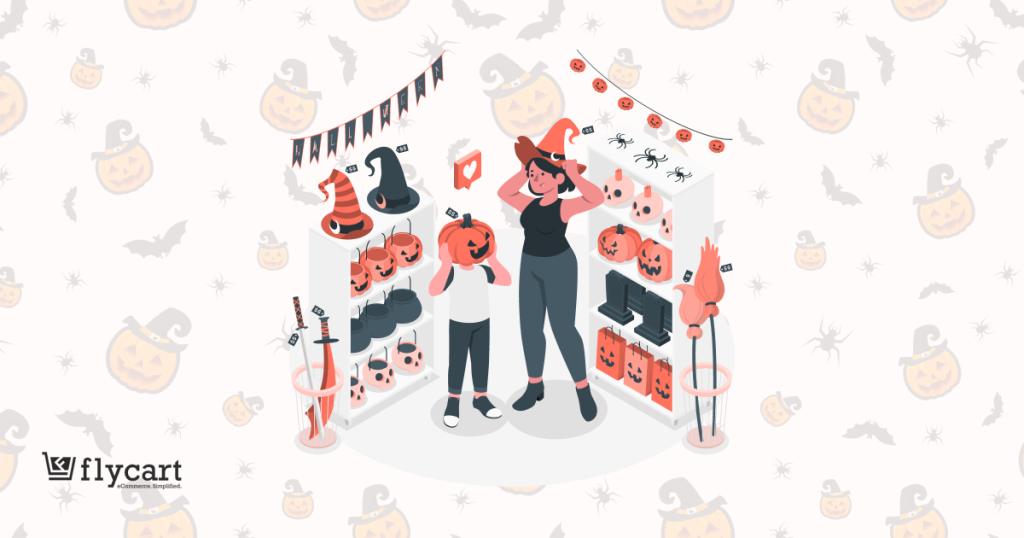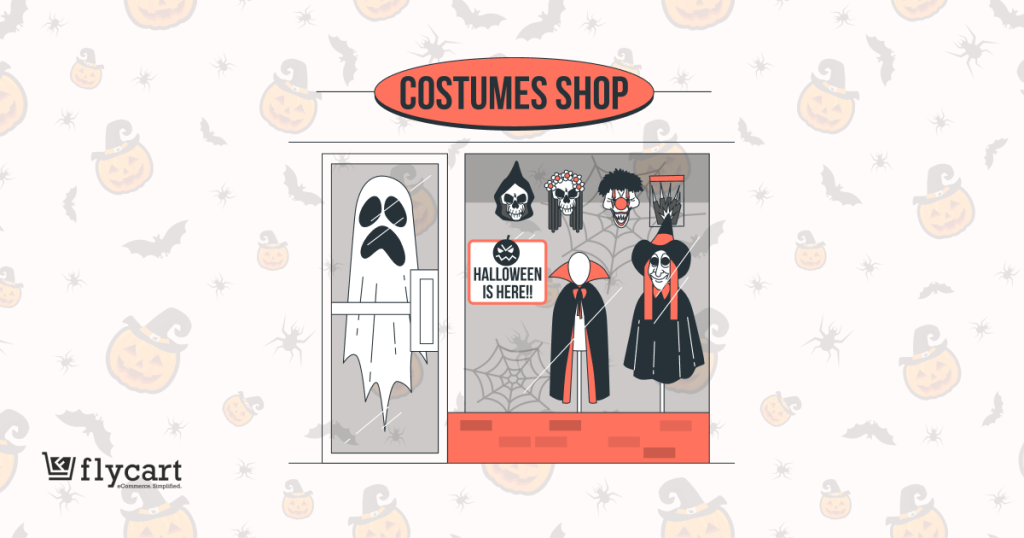With the arrival of holidays, most online selling and purchasing individuals are always more than willing to participate in two of the largest shopping holidays of the year: Black Friday and Cyber Monday (BFCM).
Over time, such shopping holidays have significantly changed the ways through which individuals buy and sell goods and especially within the eCommerce industry.
The National Retail Federation reports a record 200.4 million shoppers participated in Black Friday and Cyber Monday sales in 2023.
Black Friday and Cyber Monday represent an enormous chance for online sellers to increase sales, enhance brand visibility, and win new customers.
WooCommerce store owners have a unique opportunity to boost sales during BFCM by leveraging smart discount strategies
When it comes to utilizing the days online sellers are usually asking, ‘Are black Friday deals better than Cyber Monday deals?’ What strategies should online retailers adopt to maximize sales during these massive shopping days?
In this blog, we will take a journey through everything you need to know about Black Friday & Cyber Monday, comparing them, understanding their differences, and offering strategies for success.
Create customized discounts for Black Friday sales with Discount Rules Pro plugin and increase your sales by up to 31%.
What is Black Friday?
Black Friday falls on the day after Thanksgiving. It had been designated by retailers as the unofficial first day of the holiday shopping season in the United States.
Traditionally, Black Friday marked an account-turning day when the retailers sold enough goods so that their accounts turn ‘into the black’. It is now a global phenomenon and as eCommerce increases no store is strictly ‘bricks and mortar’.
In order to keep up with the current trend that the traditional retailers offer, the online vendors are already giving massive deals on Black Friday.
Any piece of electronics, clothes, even luxury goods are put on extreme discount just to capture the attention of people. Initially U.S. centered, Black Friday has now become the world’s most important shopping day.
What is Cyber Monday?
As the name suggests, Cyber Monday is an online sales shopping holiday. It occurs one day after Thanksgiving and Black Friday.
In this manner, retailers have the opportunity to display their wares yet again since most individuals would prefer to spend additional time during the holiday. Cyber Monday was coined by the NRF in 2005 for the purpose of increasing the number of online shoppers.
Cyber Monday has, in recent years, become a global affair and lags only behind Black Friday in terms of total sales. With respect to electronics, fashion, and especially travel, some customers wait the entire year for Cyber Monday to get the unique deals available, which they just can’t find in-stores.
In fact, in some cases, one wonders: “Which of the two deals do I love: Black Friday or Cyber Monday?” Although there is no explicit difference between the days-and-as we outline below-there are nevertheless remarkable differences between them.
Black Friday vs Cyber Monday: Main Differences
While Black Friday and Cyber Monday are similar but different events, they serve distinctly different types of shopper and provide different opportunities for online sellers.
Here are the differences in simple terms:
In-shop versus E-shop
Traditionally, Black Friday used to be the big day for in-store sales. But Cyber Monday took on a special flavor as an online shopping day.
With the rise of eCommerce, top Black Friday deals are now online. While some still visit stores for select offers, many prefer the convenience of shopping online.
Deals and Discounts
One of the common questions has been, are Black Friday deals better than Cyber Monday deals? The answer is rather yes but only in certain product categories.
Black Friday favors big-ticket deals, while Cyber Monday offers better discounts on clothing, small electronics, and travel.
Shop owners can create bulk discounts for low ticket items to increase average order value.
Time and Span
Black Friday sales tend to start the night of Thanksgiving and often continue through the weekend, bleeding into Cyber Monday. Cyber Monday, in contrast, is purely online shopping and tends to be one day only, although some retailers have now expanded it to what is known as “Cyber Week.”
Target Audience
Consumers who love the thrill of early deals may prefer Black Friday, while those who take time to research might lean toward Cyber Monday. However, many now shop on both days to grab the best bargains.
The key to comparing Black Friday deals to Cyber Monday is knowing where to look for the greatest discounts on specific products that you might be interested in.
In this regard, an online seller can use such information to adjust sales strategies.
Drive more conversions with Discount Rules Pro plugin by applying tiered pricing based on cart value.
9 Strategies to Boost BFCM Sales
As an online seller, you can’t afford to ignore the potential of Black Friday and Cyber Monday (BFCM).
To ensure success during these critical sales events, you need to plan and execute an effective strategy. Here are some tips to make the most out of Black Friday & Cyber Monday:
1. Launch Early with Deals
Do not wait until Black Friday to begin marketing your deals. Many retailers begin to tout their Black Friday promotions weeks ahead of the day.
Have a solid strategy in place particularly for seasonal deals. Use email, social media, and paid advertising to build up to the deals and make your customers feel they deserve the best deals.
You can even offer a secret deal for loyal customers for several hours before the real deals to create excitement. You should also create a discount pricing strategy early to streamline the process.
2. Collect Products for the Best Deal
Another advantage of bundling is that customers love a good deal, believing they are getting something for nothing.
And average order value may also increase substantially if you create product bundles for sale on Black Friday & Cyber Monday: whether it be an accessory thrown in with the gadget, or a discount for a group of related products, this tactic works extremely well.
3. Optimize for Mobile Shopping
Customers are more than ever shopping through their mobile devices, especially on Cyber Monday. Ensure your WooCommerce store is mobile-friendly to capture more conversions, especially on Cyber Monday when mobile shopping peaks.
A mobile-responsive site will not have cart abandonment, and it will make it easy for customers to shop from anywhere.
Related read: 8 Must Optimizations You Should Do Before Publishing Your WooCommerce Site
4. Free Shipping
Many shoppers will not be willing to pay extra for shipping costs. Free shipping, especially on Black Friday & Cyber Monday, can generate massive conversions.
If you cannot offer free shipping on every order, at least do it on orders over a particular amount or for your regular customers.
WooCommerce store owners can incentivize purchases by offering free shipping through the Discount Rules Pro plugin, applying rules based on order thresholds to encourage larger cart sizes.
5. Use Scarcity & Urgency Tactics
Highlight when the stock is limited or the offer is just for a short time; this will create urgency that forces the shoppers to finish shopping much quicker.
Apply countdown timers, create flash sales, show alerts for limited stock, and remind customers that some deals won’t last long.
6. Use Social Proof
The inclusion of reviews, testimonials or the number of viewers of a product adds trust and urgency.
The visibility of positive reviews or even the knowledge that others are purchasing the same thing tends to make consumers buy those things, too. Include prominent customer reviews during these sale days.
7. Plan for Inventory and Fulfillment
This high volume of sales on Black Friday & Cyber Monday may cause stockout or delayed fulfillment.
Prepare ahead by predicting demand based on history and current market trends. You can also consider offering pre-orders for out-of-stock products to keep customers engaged.
8. Retarget Cart Abandoners
Cart abandonment occurs very frequently during traffic-intensive shopping events such as Black Friday and Cyber Monday.
Do not forget to send retargeting ads or email reminders to customers who left their items in the shopping carts with an added incentive such as a discount code.
9. Post-Sale Engagement
The sales opportunities do not necessarily end with Cyber Monday.
Engage those customers who purchased during the sales events by sending thank you emails in a personalized manner, offering them loyalty rewards, or informing them of deals that might be available within the next day or so to get them as loyal customers again.
6 Common Mistakes to Avoid During Black Friday & Cyber Monday Promotions
While Black Friday & Cyber Monday present exciting opportunities, both sellers and shoppers can make mistakes that hinder their success.
These shopping events are fast-paced, and a misstep can lead to missed sales for sellers or poor purchases for shoppers.
Below are some of the most common mistakes to avoid:
1. Overselling Without Proper Inventory Management
One of the biggest mistakes an online seller makes is overselling items without having proper stocks to support those sales. With the huge amount of sales during Black Friday & Cyber Monday, you can easily drain out your stocks, and if planning is not done, it may eventually lead to canceled orders, dissatisfaction of customers, and negative reviews.
Thus, one must forecast demand, optimize inventory levels, and keep a close eye on stock availability in relation to the event.
WooCommerce store owners can prepare for BFCM sale by setting up pre-orders or back-in-stock notifications, ensuring customers stay engaged even if products run out.
2. Ignoring Website Load Times and Traffic Capacity
High traffic on your eCommerce site is a wonderful problem to have, but it can quickly turn into a nightmare if your website crashes. Online sellers have to ensure that their websites are ready to handle the surge of visitors.
Slow load times or outages during peak shopping hours will only serve to frustrate their customers, who will go and shop elsewhere. Avoid this by optimizing your site speed, investing in scalable hosting solutions, and running your stress tests well before Black Friday & Cyber Monday.
3. Not Targeting the Right Audience
Casting your net too wide with the marketing approach may tend to diffuse the effects of your efforts. You should not try to reach everybody; instead, try targeting the people you know you will reel in based on your products and customer preferences.
Use data from previous years to tell you who are your best customers and personalize your offers. Whether you run an ad or send an email campaign, segmenting your audience will get you to offer more tailored deals that will lead to higher conversion rates.
4. Failing to Offer Competitive Deals
With Black Friday & Cyber Monday at the doorsteps of so many retailers offering huge discounts, consumers expect great deals. If your offers are not competitive or less valued than your competitors’, shoppers will just pass on them.
Be sure to price your products competitively and do not shy away from offering bundling or incentives such as free shipping in adding more value. Research so you know what others who sell the same thing in your niche are offering to be one step ahead.
5. Neglecting Post-Sale Support
Once the sale happens, your work is not over. During Black Friday & Cyber Monday, the stakes are sky-high among customers. It may involve delayed shipping, bad customer service, or even not taking care of post-sale issues-all of which might harm the brand reputation.
Returns and exchange processes must be in place along with customer service support. After-sales engagements can make you convert the first-time buyer into a loyal one by either sending thank-you emails or survey mails or loyalty rewards.
6. Overcomplicating the Checkout Process
Long, tedious check-out procedures are among the most common abandoned cart reasons especially in events like Black Friday & Cyber Monday.
Ensure your checkout process is streamlined and as few steps as possible, accepts more than one form of payment, and enables the customer to complete his purchase in a minimum number of steps. Integrate features like guest check out and one-click pay, which lower friction and turn more visitors into buyers.
Simplify seasonal promotions with Discount Rules Pro plugin by scheduling holiday discounts effortlessly.
Conclusion
Black Friday & Cyber Monday are two golden opportunities for online store owners to lift revenue and get new customers.
Understand the difference between the two shopping events, and you will know what kind of right strategy you have to squeeze the last bits out of these critical shopping days.
Or whether customers want BFCM offers or seek the best Black Friday and Cyber Monday flight deals, your business will stand out through offering value, great deals, and an exceptional shopping experience.
Proper planning, inventory management, and marketing strategy will help an online store to become a huge revenue generator in terms of Black Friday & Cyber Monday.
So, why wait? Start today itself. You don’t have to wait for next year’s November. Get your business ready to thrive amidst these monumental shopping days.
Also read:
- Black Friday Marketing Campaigns: 10 Strategies + 15 Ideas to Boost Sales in 2024
- 10 Black Friday Coupon Code Ideas for 2024 (WooCommerce Edition)
- How to Prepare Your WooCommerce Store for Black Friday Seasonal Sales
Frequently Asked Question
Offering early access or exclusive discounts to loyal customers boosts engagement and sales. Promote these deals through email campaigns or membership perks before the main sale begins.
Ensure a smooth checkout, offer free shipping, and use personalized cart abandonment emails with limited-time discounts to recover lost sales.
Small businesses stand out with personal service, unique products, bundles, and a compelling brand story that attracts customers seeking authenticity.
It depends on your strategy. Sitewide discounts attract more shoppers, while product-specific deals help clear inventory or boost high-margin items. A mix often works best.
Leverage social media by teasing deals, sharing countdowns, and offering exclusive codes on platforms like Instagram and Facebook. Live streams and unboxings also boost engagement.
Extended return policies boost buyer confidence, especially for high-ticket items. Hassle-free returns make customers feel secure, leading to higher sales.
Offer multiple payment options: credit cards, PayPal, Apple Pay, Google Pay, to simplify checkout and boost conversions by reducing purchase friction.
Track metrics like revenue, conversion rate, AOV, CAC, and ROAS. After the sale, analyze retention rates and customer feedback using tools like Google Analytics and your eCommerce dashboard.






